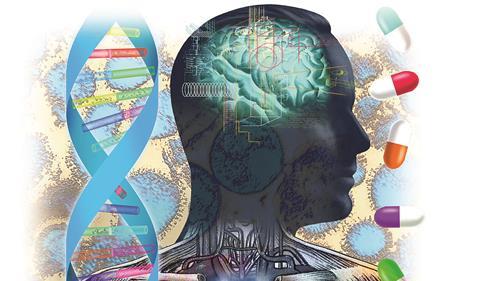All this week HSJ is celebrating the innovators making a difference to patient care and policy in the health service

NOT FOR REUSE
The NHS Five Year Forward View last week set out system leaders’ vision for how the health service can meet public demand and remain affordable over the next five years.
On innovation and technology, the forward view said the reason investment has not always delivered the return it should is because care models and working cultures have not been ready.
Over the next five days we put the spotlight on some of the people who are already showing the creativity and imagination necessary to transform the NHS for the 21st century, by introducing new ways of working, policies and technology to their workplaces and beyond.
Today, Andrew Fenton reminds us that it’s not the technology that has to bee innovative, but the model of making it generate benefits in practice that is important. He describes 10 ways to use technology to improve patient care.
On Tuesday, one of HSJ’s Inspirational Women in Healthcare, Gill Phillips, explains the story behind Whose Shoes? – a board game that has facilitated discussions about patient centred care and co-production of patient pathways.
Even the most passionate innovators can face barriers in the form of legislation and regulations. But on Wednesday Elisabetta Zanon, director of the NHS European Office, says that now some of the EU red tape has been cut, the NHS is free to be more innovative through clinical trials.
In an HSJ Podcast, behaviour change expert Claire McDonlad tells us about the work she is doing to encourage people to change their lifestyles and improve public health. Meanwhile, Shane Tickell looks at why it might be better for NHS technology rollouts to slow their pace.
On Thursday, case studies of two of last year’s NHS Innovation Challenge Prize winners are showcased.
A new pathway is allowing people in Nottingham to benefit from early diagnosis for liver disease using screen test tools – early enough to reverse the damage.
Memory First, a ground breaking service model led by GPs, has been instrumental in cutting dementia diagnosis times from three years to four weeks.
At 7.30pm we will reveal the 50 HSJ Top Innovators 2014. In our second year, the focus was to celebrate people whose approaches are making a tangible difference to patients, colleagues or wider society. In particular, we looked for people who our judges felt were solving the most significant problems facing the NHS, and those whose innovation inspired others.
Do you agree with our judging panel’s choices? Remind yourself who was on the list last year.
Finally, we end Innovation Week with Karen Middleton writing about how a new online tool can help the NHS bring down the £2bn cost of hospital admissions for falls – which are responsible up to a quarter of ambulance callouts.
Join in the discussion on the Innovation Week page and on Twitter using #HSJInnovators. See HSJ’s Pinterest board of future trends in healthcare.

























